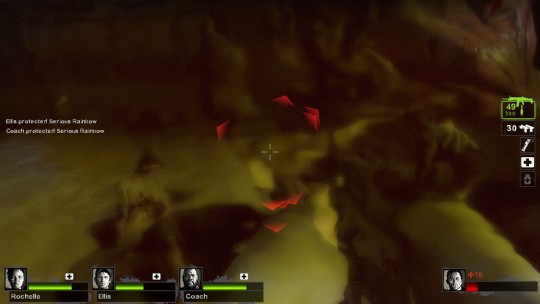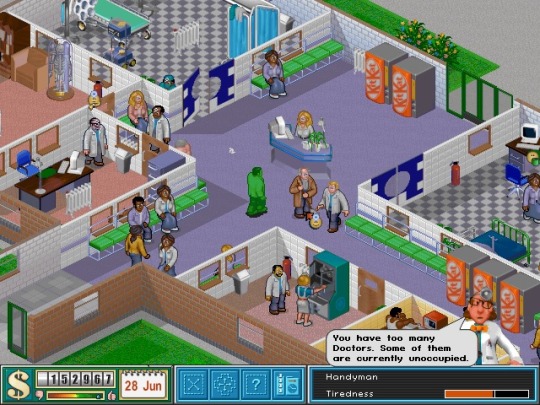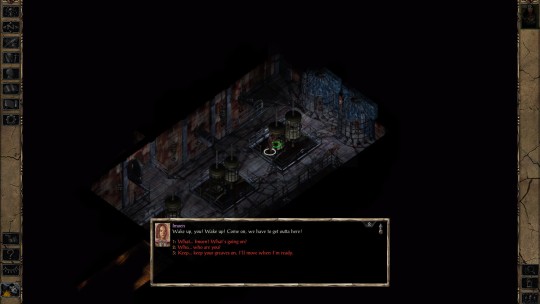#campus hiring strategy
Explore tagged Tumblr posts
Text
Optimize Your Talent Acquisition with Campus Hiring Solutions and Recruitment Automation
Discover effective campus hiring solutions and innovative recruitment automation software to streamline your company campus recruitment. Enhance your campus hiring strategy by integrating online recruiting and virtual interview platforms to find top talent faster.
#campus hiring solutions#campus hiring strategy#company campus recruitment#online recruiting#automated hiring system#virtual interview platforms#recruitment automation software
0 notes
Text
The Hiring Business: Making Your Recruitment Strategies Effective
One of the most important things a firm can do is hire the correct staff. A company’s ability to draw in, vet, and hold on to exceptional people who align with its values and aims is often the key to its success. This blog examines the nuances of successful hiring procedures, exploring the reasons behind the success of well-hired organizations, the tactics they use, and the advantages of a…

View On WordPress
#best recruitment strategies#building an effective campus recruitment strategy#creating an effective recruitment strategy training#effective campus recruitment strategy#effective recruitment strategies#hiring strategies#recruitment#recruitment agency#recruitment business#recruitment consultant#recruitment marketing strategies#recruitment strategies#recruitment strategy
0 notes
Note
For the 5 hcs, au where fuyumi, manual, gran torino, and hawks all teach at ua. Bonus if nedzu teaches a homeroom or something
Can't help but think about something my coworkers discussed this week: the difference between teachers who had to take some kind of child psych course, and the teachers who didn't.
1- Fuyumi is a first year teacher who got her degree in education and licence to teach the traditional way, paying for those classes with the money she made as a hero part time. She didn't believe in only trying halfway to be a teacher just because it was at a hero school. (Being a teacher was her real dream. A hero teacher was a compromise with her father's expectations.) Manual went through a teaching program and started a couple years ago, so he's got a little more experience than her and almost as much training. Hawks went through a brief, truncated program to teach, and Gran Torino just... Got hired by Nedzu some time ago, no one questions his qualifications but honestly everyone should.
2- as teachers with the most experience, Torino and Manual have hero homerooms. Torino was given 1A this year to watch out for All Might's successor, and 2A is just glad he didn't move up with them. Manual has 1B and is not used to being on the same grade team as Torino- nor to running a rivalry with him but when Torino starts it, you kinda have to get with it or get run over.
3- Fuyumi has a homeroom 1C, and takes a role similar to Midnight's- she teaches a lot about image and how to project what is the best for you, how to pick agencies and the strategy for communicating with them. She's also given announcer duties at the SF as a notable hero, but not too popular on her own to run the third year stage instead. She's honestly glad for her homeroom, it's a bit like the normal teaching gig, and she gets to travel to work and back home with Shoto every morning.
4- Hawks honestly wanted a lot of the job Fuyumi got, but instead teaches Rescue more than anything else. He was sent to UA to be the Commission's eyes. Nedzu is aware, and that's why he's kept a bit away from the main campus most of the time, and why he was picked to announce the third year stage at the SF.
5- All Might's favorite fellow teacher is Manual, because he's terrified of Torino, feels bad relying on young Hawks, and as helpful as Fuyumi is, it's her first year too. Manual can be a great teacher mentor though, reviewing his lesson plans for the first years with a careful eye! (And honestly, a pale face almost passed out from the compliment.)
#pocket talks to people#anon#ask game#it's a young staff even if Torino and RG are spiders georging the average age up quite a bit...
27 notes
·
View notes
Text
"The problem is — and I will keep banging this drum as long as I have to — Biden’s incoherence on Israel and Palestine is both morally unforgivable and bad political strategy. He is bleeding support not only from young people, Arab-Americans, and others incensed with his continued support for a genocidal war machine, but also from pro-Israel moderates and Never Trump conservatives who are enraged at his furtive and contradictory efforts to ever-so-slightly rein that war machine in. I’ll give more details about that incoherence below. For now, I’ll just say that by trying to make everyone a little happy, he is making no one happy, as the pile of Palestinian corpses grows at his feet.
But that’s the narrow part of the question in the context of American politics. The bigger issue for me is why Biden’s management of the human catastrophe in Gaza is so salient. My answer is that it points to the larger and even more consequential failures of liberal politics over the last four to eight years.
....the heart of Biden’s failure to both recognize and confront the actual danger facing democracy. In a recent In These Times essay titled “Antifacism after Gaza,” the Italian philosopher Alberto Toscano subtly tweaked leftist Democratic politicians for whom “the threat of Trumpian despotism blunted opposition” to Biden’s Israel policy: “There is a bitter irony in granting primacy to the national fight against fascism over the campaign to stop a U.S.-funded genocide when the current Israeli government — in its exterminationist rhetoric, patronage of racist militias, colonizing drive and ultranationalism — fits textbook definitions of fascism far more neatly than any other contemporary regime.”
The campus protests would have been another opportunity for Biden to show his commitment to democratic and pro-social ideals. I’m not saying he had to support the protesters or their aims — they are, after all, in large part protesting him. But no one made Biden take the further step of employing reactionary talking points about the protests being fonts of antisemitism and supposedly genocidal rhetoric, or repeating memeified claims about “Jewish students” being “blocked, harrassed, attacked, while walking to class” — questionable claims that have been weaponized to justify state and vigilante violence against demonstrators exercising their First Amendment rights.2 Biden repeated those claims on May 7, Israeli Holocaust Remembrance Day. Yet he said nothing about the weeks of wanton anti-demonstrator violence by both police and unhinged pro-Israel counterprotesters. In fact, instead of condemning the episodic police state, he is pushing a new plan to funnel $37 billion more to police departments and hire 100,000 more cops.
The political problem here should be obvious. How do you explain to a student who just watched, say, the NYPD throw their friends down a flight of stairs for participating in a nonviolent protest — acts committed without so a peep of condemnation from the president — that a vote for him is a vote against fascism?
Nor is Gaza the only place Biden and the Democrats keep undermining their claim to being the antifascist party. The president has repeatedly pleaded with Trump to work with him in passing a MAGA-like immigration bill: one that prioritized enforcement, detention, and “shutdown” measures over, for instance, pathways to citizenship for undocumented migrants or those who came as children. When Trump didn’t take Biden’s obvious political bait, the president tried running even further to his right. Biden can insist, as he did at the State of the Union, that he “will not demonize immigrants” or endorse Trump’s Hitlerian cant about “poisoning the blood of our country.” But by adopting reactionary fearmongering about the need to “secure the border” above all else, all that remains of a message to voters is that even squishy libs think the fascists have a point about immigration — it’s just that they aren’t willing to do more to stop it.
The connection between state violence at home and genocide abroad isn’t lost on the students. Popular chants connect the dispossession and killing in Palestine to U.S. policy in the Philippines, Vietnam, and Latin America, as well as immigration policy here: “From Palestine to Mexico / border walls have got to go.” As Toscano notes, protesters at the University of Texas chanted at the Austin police: “APD! KKK! / IDF! They’re all the same!” — connecting domestic policing and racism to the Israeli military. And indeed, that connection isn’t purely theoretical: thousands of U.S. police officers have received direct training from the Israeli military on crowd control, use of force, and surveillance in recent decades, including the NYPD, and yes, the Austin police as well.
#us politics#us fascism#us imperialism#us immigration#solidarity#collective liberation#state repression#state violence#surveillance state#white supremecy#palestine#free palestine#settler police#settler colonialism#settler violence#student protests#student activism
7 notes
·
View notes
Text


Equestria Girls Redesigns Apple Jack and Rarity!
I did not change much of their designs because, I do like them mostly the colors and for their human designs I wanted Rarity to have a more practical outfit than gem covered and pencil skirt.(I may have gone too practical but I wasn't sure what to do besides a more business casual look)
AppleJack in Pony world, they don't have that much changed AJ is still working at the farm and selling apples at the market. In fact business has been so well that Princess Celestia has hired the Apple family to provide the food for her new magic school campus. Twilight Sparkle has even stopped by the farm for a quality check of the food and produce. It didn't take long or much effort for Twilight to give the stamp of approval. AppleJack even offered to show Twilight around town sometime since she is new, it will be tricky with both having busy schedules but AJ always makes time for her friends.
Rarity in the pony world has also been hired to not only help decorate the school but design the uniforms a simple vest or cape the students wear to classes. Twilight stops by every now and then to check on the progress of the decor and to approve the uniform designs. Safe to say Rarity was head over hooves for Twilights hair streaks. She can always appreciate a nice splash of color. After some chatting Rarity recommends the spa for Twilight as the best way to relax and get some lovely treatments.
AppleJack in the Human world, AJ is going to college to learn some more about business and agriculture. She has still grown up on the farm her whole life, but it doesn't hurt to see if there is more tricks or marketing strategies she can know to help the farm. (They are not struggling by any means it is just extra knowledge, and Granny Smith encourages her to go so she can learn more about herself and if farm life is really what she wants)
Rarity in the Human world, Rarity attends college and is taking business marketing and fashion courses. She hopes to open her own store and brand one day. Making fashionable but also quality personal outfits for all no matter where they are from or their body type. She currently works at a high end fashion store and sees how the style and designs are surprisingly limited. She plans to change that.
Designs: Human AJ I took away her hat just because she wouldn't wear it much unless she is working in the field. Pony AJ I mostly muted the colors and gave her marks to look like work boots. Human Rarity I simplified her outfit to a more business office look but still fashionable. Pony Rarity I mostly darkened her hair and gave her a necklace that she also has in her human form. For both I only changed their cutiemarks a bit AppleJack an apple cut in half in the shape of a heart, and Rarity still gems but a needle and thread going through them.
I am trying to avoid just slapping the characters cutiemarks on their clothes but I am hoping that the characters are still recognizable.
#my little pony#mlp fim#mlp g4#my little pony friendship is magic#redesigns#applejack#rarity#applejack mlp#rarity mlp#equestria girls
6 notes
·
View notes
Text
Recruitment service in Gurgaon
Gurgaon, India's millennial hotspot, pulsates with the energy of startups, MNCs, and ambitious individuals all vying for their piece of the pie. But in this dynamic landscape, finding the right talent can feel like scaling Mount Everest blindfolded. That's where Brooks, Gurgaon's premier recruitment service provider, steps in, acting as your sherpa to the talent summit.
Beyond Resumes: Unveiling the Human Potential
Gone are the days of sifting through endless resumes. Brooks goes beyond the superficial, delving deep to understand your company culture, specific needs, and ideal candidate profile. We employ a blend of cutting-edge technology and human intuition to identify individuals who not only possess the requisite skills but also seamlessly integrate into your unique work environment.
Our Recruitment Arsenal: A Multifaceted Approach
Brooks boasts a diverse recruitment arsenal, ensuring we find the perfect match for every role:
Executive Search: Headhunting top talent for leadership positions, leveraging our extensive network and deep industry knowledge. Mid-Level and Professional Recruitment: Identifying and attracting high-performing professionals across various sectors. Campus Recruitment: Tapping into the fresh talent pool from Gurgaon's prestigious universities and colleges. Contractual Staffing: Providing temporary workforce solutions for specific projects or peak seasons. Employer Branding: Crafting a compelling employer brand that attracts and retains top talent. Technology Meets the Human Touch: A Winning Formula
We leverage cutting-edge AI-powered platforms to streamline the recruitment process, but never lose sight of the human element. Our experienced team of consultants personally interacts with both candidates and clients, ensuring a personalized and effective experience for everyone involved.
Beyond Recruitment: Building Partnerships
We understand that recruitment is not just about filling positions; it's about building long-term partnerships. We work closely with you to understand your company's growth trajectory and talent needs, providing ongoing support and strategic guidance to ensure a successful talent acquisition strategy.
Ready to Scale Your Gurgaon Success Story?
Let Brooks be your recruitment compass, guiding you to the hidden gems in Gurgaon's talent pool. Contact us today for a free consultation and unlock the full potential of your workforce.
Remember, with Brooks, your recruitment journey in Gurgaon will be:
Efficient: We save you time and resources by finding the right talent quickly and effectively. Effective: We identify candidates who not only possess the skills but also the cultural fit to thrive in your organization. Strategic: We partner with you to develop a long-term talent acquisition strategy that aligns with your business goals. Gurgaon's talent landscape is ripe for the picking. Let Brooks help you harvest the best!
Bonus Tip:Recruitment service in Gurgaon
Include success stories or testimonials from clients who have used Brooks' recruitment services in Gurgaon. Offer a free downloadable resource, such as a guide to hiring top talent in Gurgaon. Highlight any awards or recognitions that Brooks has received for its recruitment services. By incorporating these suggestions and tailoring the content to Brooks' specific strengths and offerings, you can create a compelling blog that attracts businesses seeking to hire top talent in Gurgaon's dynamic job market. Remember, the right talent can be the difference between scaling new heights and getting lost in the maze. With Brooks as your guide, your Gurgaon recruitment journey is guaranteed to be a success story.
I hope this blog provides a good starting point for your keyword "Recruitment service in Gurgaon from Brooks." Feel free to adjust it to reflect your specific company offerings and brand voice.
#top eor providers in india#best payroll services provider in delhi & ncr#consultant payroll services in india#posh training in india
2 notes
·
View notes
Text

Strohs Brewery 991 Gratiot Ave
Stroh Brewing Company started with Johann Peter Stroh in 1775 in Kirn, Germany. Johann and his family lived in a house with an adjoining brew house attached, and ran a local inn that served meals and their family’s recipe for Bohemian-style Pilsner Ale. Johann had three sons and one daughter. His second son, Georg Freidrich Stroh, inherited the brew house. Georg’s youngest son was
Johann Bernhard Stroh (known to the world as Bernhard), who was born in 1821. On February 22, 1848, revolutions erupted across Europe. With all the turbulent violence surrounding Europe in the mid-19th century, and with his father Johann’s death and his elder brother Georg inheriting the family business, a 27 year old Bernhard Stroh, who had learned the brewing trade, immigrated to the United States.

Bernhard Stroh arrived in the United States in 1850. He immediately started his own business. Stroh opened a brewery at 57 Catherine Street…He developed a market for a new light lager beer among the larger German immigrant population, and names his new company Lion’s Head Brewery, adopting the Lion’s Crest logo from Kyrburg Castle in Kirn, Germany.
The company uses this same crest as their logo to this day. With only an investment of $150 (in 2016 dollars, this would amount to $4,409.53) that he provided himself through working for the family inn back in Germany, Stroh had to be very frugal in his spending. By 1860, Stroh’s customers had a desire for Stroh to start bottling his famous beer so they could enjoy the Bohemian-style Pilsner Ale at their homes.

Bernhard Stroh would have his sons personally cart small kegs of beer to his customer’s homes and business by wheelbarrow.
Stroh’s would not only become Detroit’s largest brewer, but the third largest in the country.
This massive, million-square-foot factory at Gratiot near I-75 grew as the company did, with buildings dating from the 1860s to 1914. In late 1890, the firm Spier & Rohns was hired to make extensive additions and improvements to the Stroh campus, including building a 25-foot-by-70-foot fireproof stockhouse, a 60-foot-by-100-foot bottling works, and a new ice-machine plant. These additions made the brewery the largest in Michigan and formed some of the most visible parts of the plant.
By 1956, the Detroit brewery was pumping out 2.7 million barrels of beer — 83.7 million gallons.
he 1970s and 1980s were very productive years for the Stroh’s; sales continued to increase with the acquisition of Goebel’s, new leadership came in 1967 with John Stroh becoming CEO and Peter Stroh, Gari Stroh’s son, became President. The duo expanded the company to its greatest height throughout the two decades with new marketing and aggressive advertising strategies. With increased sales, the Stroh brewing company was able to match the big three car companies in terms of salaries and benefits. Early in the 1980’s, Peter Stroh started looking to take Stroh’s to the national stage, and made a bid on the Schaeffer Brewing Company and Schlitz Brewing Company. Schaeffer started to go into debt in the late 1970s and early ’80s, making the buyout from Stroh’s all too easy in 1981. Schlitz accepted a buyout offer of $17 a share. Schlitz became a wholly owned subsidiary of the Stroh Brewing Company, making Stroh the third-largest brewery in the United States. With all this expansion, Peter Stroh, now CEO at this time, realized his company was overextended. By 1985, Peter Stroh recognized his company was operating with excess capacity, On Feb. 8, 1985, Stroh’s announced it was closing its Detroit facility, calling it too costly to run and too inefficient compared with newer facilities it had acquired. The plant was shuttered that May, bringing an end to 135 years of tradition and costing 1,159 Detroiters their jobs.

The factory was imploded in two phases -- on April 13, 1986, and July 13, 1986 -- with the land soon redeveloped as Brewery Park.
In 1999, the struggling company was imploded, too, split up and sold to Miller Brewing and Pabst.
2 notes
·
View notes
Text

Numbers 60-51! There's a lot of sequels or spiritual successors in this one. That's just how the list came to be, I have to say.
Link to part 1. Link to part 2. Link to part 3. Link to part 4. Link to part 6. Link to part 7. Link to part 8. Link to part 9. Link to part 10.
60. Left 4 Dead 2

Left 4 Dead 2 is the better of the two because all of L4D1 is in L4D2. And it's FAN-FREAKING-TASTIC to play with friends (or bots), just do a whole campaign with 3 of your friends shooting zombies, trying to get through to each safe house, getting picked up at the end, it's a great time.
59. XCOM: Enemy Unknown

The game that really got me into the X-COM/XCOM series. XCOM: Enemy Unknown is Firaxis's first take on the alien strategy game, and refines it so you get a nice streamlined experience, and repopularized the genre. Even with its sequel choosing to go with the bad end, the good end is fun to get to.
58. Theme Hospital

I love Theme Hospital more than Theme Park. I don't know why, the theme of health care can be very dry. But Theme Hospital makes it funny with Bloaty Head, King Complex, Hairyitis, and Invisibility illnesses. It's a little less hardcore than Theme Park, but that makes it better, in my opinion.
57. Two Point Hospital

Not to say that the formula couldn't be improved. Two Point Hospital is everything Theme Hospital is, but better. Better room design capabilities, better way of hiring staff, better training of staff, sillier illnesses, easier to get into, more experimentation with levels, just everything's better. I freaking love Two Point Hospital.
56. Two Point Campus

Not to say it couldn't be refined further. Two Point Campus replaced the health care theme with a university/college theme and adds the ability to build your own buildings instead of having pre-built plots to build within. The new theme allows them to go even zanier, and it's worth it to three-star each university. I love Two Point Campus.
55. The Sims 2

The Sims 2 is my favorite of the The Sims series, adding aspirations, wants, fears, and giving the game a great feel. Adding the life stages, and making Sims age was a great addition to the series, and it's all-in-all a better experience than The Sims 1.
54. Baldur's Gate 2

Baldur's Gate was a great RPG when it came out, but Baldur's Gate 2 was better. It had a great main villain, a compelling story, and a great group of characters that are memorable, especially Minsc and his miniature space hamster, Boo.
53. Borderlands 2

Yes, yes, I know, its humor can feel dated now, but Borderlands 2 is still a blast to play through if you get a group of friends together to do so. Handsome Jack is a fantastic villain, and the guns feel great to use. Well, maybe not Hyperion if you're concerned about accuracy. Anyway, the Vault Hunters all feel unique, and it's fun to play as any of them.
52. FlatOut 2

FlatOut 2 is a great racing game with stunts and realistic damage. Its AI isn't too bad either, I don't feel like they're rubberbanding when I race against them. The tracks are all distinct and feel good to race on. The stunt mode is also great, trying to fling your avatar into specific places.
51. Rise of the Triad

Ah, good ol' Rise of the Triad, the progenitor of Ludicrous Gibs. It's not bad, being built on a heavily-modified Wolfenstein 3D engine that allowed height. Its ridiculousness helped it stand out among the so-called “DOOM clones,” what with powerups and powerdowns such as God Mode, Dog Mode, Shrooms Mode, and Elasto Mode. Really looking forward to the Ludicrous Edition.
Part 6 is next!
Link to part 1. Link to part 2. Link to part 3. Link to part 4. Link to part 6. Link to part 7. Link to part 8. Link to part 9. Link to part 10.
#Ask Serious Rainbow#AskSeriousRainbow#Top 100#Left 4 Dead 2#XCOM: Enemy Unknown#Theme Hospital#Two Point Hospital#Two Point Campus#The Sims 2#Baldur's Gate 2#Borderlands 2#FlatOut 2#Rise of the Triad
8 notes
·
View notes
Text
There are academics who (rightfully) critique the adjunctification of the professoriate. That is, they take issue with universities hiring more and more part-time, adjunct faculty (who have little job security) instead of full-time, tenure-track faculty (who have great job security after tenure).
I agree with this critique. Full employment, full benefits, job security for everyone, fuck scarcity.
However, it's obvious that some tenured faculty are only just now realizing that--under the current higher ed system (the one they, as tenured faculty, benefit from immensely)--reducing the number of adjuncts means reducing the number of adjuncts.
These tenured faculty previously didn't grasp that de-adjunctification involves laying off adjunct faculty.
Due to budget cuts and enrollment declines, universities are laying off or "not reappointing" adjuncts. Which is bad and entirely avoidable if institutions and governments got their priorities in order. (Maybe we don't need an office for the campus President's wife?)
But the reduction in adjuncts is accomplishing (in a vicious manner) the call for greater tenure-track density (more tenured and tenure track faculty vs. adjunct faculty).
And now tenured faculty are realizing the human costs of their beliefs.
Again, these lay-offs are terrible management decisions that have little to do with critiques of adjunctification. I'm not saying tenured faculty made this happen.
However, you would think proponents of de-adjunctification would be more prepared to weather a very foreseeable outcome of that process.
You'd think a tenured, full professor would be able to announce "we will have less work for adjuncts this year; start looking for other jobs" without crying, and making a big show of how much this saddens them, and generally reorienting all the compassion in the room towards them and away from the people losing their fucking jobs.
You'd think these tenured faculty would come up with a more winning strategy for resisting these decisions than "being sad in public."
You'd think, but you'd be wrong.
3 notes
·
View notes
Text
Best companies hiring freshers in Delhi NCR
Top IT and Infotech Companies Hiring Freshers in Delhi NCR Delhi NCR remains a flourishing hub for IT and technology professionals. It offers countless jobs for freshers, providing an opportunity to launch a career in this domain. Here is a detailed look at the major companies and skills from which young professionals can benefit to break into the tech industry. Top IT Companies for Fresher Opportunities Some of the major IT companies are hiring fresh talent in the Delhi NCR region: Major IT Companies HCL Infosystems Ltd3 Iris Computers Ltd3 Cognizant Infosys Accenture Wipro HCL Technologies Emerging Startups and Tech Companies SNABBIT LIVONTA CARE MITRA MANPOWER URVASHI BRIGHT STEELS1 Key Tech Skills for Freshers in 2025 To gain maximum employability in the competitive IT landscape, freshers should focus on developing the following critical skills: Programming Languages Python: Versatile and in high demand across multiple domains Java: Still a cornerstone of enterprise software development JavaScript: Programming for web and application development Emerging Technical Domains Cloud Computing: Knowledge of AWS, Azure, and Google Cloud Data Analysis: Familiarity with SQL, R, and Python data libraries Cybersecurity: Knowledge of network security, ethical hacking Artificial Intelligence and Machine Learning: Basic to intermediate knowledge Freshers Salary in Delhi NCR The salary prospects for freshers in Delhi NCR are quite positive: Average salary bracket : ₹ 35 , 000 − ₹ 80 , 000 ₹35,000−₹80,000 per month1 It depends upon qualification and specific skills Job Application Strategies for Freshers Main Job Search Sites Job Hai Apna.co Internshala LinkedIn Application Tips Finish your professional profile Emphasize relevant technical skills Tailor resumes for specific job roles Utilize campus placement opportunities Network through professional platforms Emerging Job Roles for Tech Freshers Software Developer Cloud Solutions Architect Data Analyst Cybersecurity Specialist AI/ML Engineer DevOps Engineer Skill Development Recommendations Online Certifications Acquire industry-recognized certifications Finish online courses from Coursera, edX Acquire vendor-specific certifications (Microsoft, Cisco, AWS) Practical Experience Develop a strong GitHub portfolio Take part in hackathons Contribute to open-source projects Personal Tech Projects Job Market Insights Overall fresher jobs in Delhi: 3,429+1 Emerging job opportunities in remote and part-time jobs Enhanced demand for technical skills from all sectors Conclusion Delhi NCR tech ecosystem offers exciting opportunities for freshers who want to invest their time in continuous learning and upskilling. Focusing on technical skills in high demand, an updated professional profile, and adaptability will help freshers navigate the competitive IT job market.
0 notes
Text
Best Career-Oriented Courses to Pursue After Graduation for Job Readiness
Congratulations! For completing a major milestone in your academic journey: graduating. But it's not the end, it's just the beginning of your career journey. After graduating you must have realised you are still unprepared for a job. As you step into the professional world you need job-specific skills to get hired. This is where specialisation courses after graduation come into play. In today's highly competitive job market, choosing from the best courses after graduation is a complex task because you have options ranging from technical expertise to specialised management knowledge. In this text, we will discuss some of the best courses after graduation that you can pursue to make yourself prepared for prepared with job-ready skills.
Why career-oriented courses after graduation?
In the era of the job market where numerous layoffs are normal, getting specialised is the only prevention. The competition in recruitment has been so fierce that a graduate degree is not enough to get you a decent job and so upskilling yourself before you are going to enter a competitive industry and by pursuing 1 year courses after graduation you get the skills that are jobs-specific will make you more employable and easily get you hired.
Best career-oriented courses after graduation:
The courses listed below are high in market demand, if you pursue them, they will not only add to your resume, but also help you get the dream job of yours:
Cybersecurity and Artificial Intelligence: Due to increased digitalisation and rising viruses and cyber threats, industries need skilled professionals who can assess and manage threats and possible loopholes. This is a reason this course is a highly lucrative one as per current scenarios.
Data Analytics and Digital Marketing: In this age of technology, if you learn how to navigate digital platforms, manage Search Engine Optimisation (SEO), analyse sheets of data, developing strategies to regulate marketing. With a specialization in this domain one can lead business in strategic decision making and forming a strong online presence.
Finance Analytics and Investment Management: If you’re someone who is interested in number and the financial domain, a specialisation in these can be highly beneficial. You are trained and equipped with investment strategies, portfolio management, and valuation techniques in financial markets.
Postgraduate Diploma in Risk Management: The economy is only getting more and more volatile. Risk management in such unpredictable business scenarios is crucial. Risk managers have become indispensable parts of an organisations as they lead businesses through turbulent times. The PGDRM program offered by Global Risk Management Institute Gurgaon is designed to prepare graduates to tackle complex challenges in sectors such as finance, insurance, IT and more. This is an on-campus, 1 year course after graduation that is tailored according to industry.
The PGDRM program is a one-of-its kind course teaching you every aspect of the risk domain from subjects such as financial risk management, enterprise risk, ESG, third-party risk management, cybersecurity etc. Hence, opening you up to various job roles across industries. GRMI holds a 97% placement track record with Median CTC of INR 9.25 LPA. A risk analyst, risk manager, compliance officer, or internal auditor are some of the common roles that students get at the completion of this course. To know more connect with GRMI’s team on 09910939240.
Conclusion
By investing in career-oriented courses after graduation you will be preparing yourself to be job-ready. These 1 year courses after graduation give you specialised skills that you need. If you also want to be lead companies in the risk domain, consider GRMI’s PGDRM program. With its industrial-relevant curriculum and practical approach this course will provide you with tools to stand out to the best employers. If you are ready to make a mark in your career, choose your way, upskill, and step confidently into a future field with opportunities. Call 09910939240 to explore the field of risk.
0 notes
Text
🌟 Unleash the Power of Superset: Your Ultimate Campus Recruitment Partner! 🎓💼
From startups to enterprises, Superset caters to all, redefining campus hiring with an all-in-one recruitment infrastructure. 🌐🚀
📋 Simplify Your Campus Recruitment Process:
Discover how our platform streamlines every step, making it effortless to manage applications, assessments, interviews, and job offers - all within one user-friendly account. 🤝📝
🌟 Key Features:
- 🌐 Virtual Campus Hiring: Connect with talent no matter where they are.
- 🏫 Campus Recruitment Made Easy: Effortlessly navigate the campus recruitment process.
- 🔧 Recruitment Automation Software: Say goodbye to manual processes.
🔑 Elevate Your Campus Hiring Strategy:
Superset empowers you with the tools you need to execute a seamless campus hiring strategy. 📈📚
💼 Join the Future of Campus Recruitment:
Superset - Where innovation meets efficiency in the campus hiring process. 🚀
#VirtualCampusHiring #CampusRecruitment #RecruitmentAutomation #Efficiency #SupersetSuccess
#campus recruitment#campus hiring#campus hiring software#virtual campus hiring#campus recruitment process#campus hiring strategy#campus recruitment software#virtual campus hiring software#virtual recruitment platform#virtual campus recruitment software#virtual campus interview#virtual hiring software#campus hiring platform
0 notes
Text
Recruitment Agency in Delhi: Your Gateway to Top Talent

In today's fast-paced and competitive business environment, finding the right talent can be a daunting challenge. For companies in Delhi, the solution lies in partnering with a reliable recruitment agency. Hiringgo, a leading recruitment agency in Delhi, is committed to bridging the gap between talented professionals and organizations seeking to enhance their workforce.
Why Choose a Recruitment Agency in Delhi?
Delhi, as the capital city, is a bustling hub of diverse industries ranging from IT and healthcare to manufacturing and retail. The city attracts professionals from across the country, making it a treasure trove of talent. However, navigating through this vast pool to identify the perfect fit for your organization can be overwhelming. This is where a recruitment agency like Hiringgo plays a crucial role.
Hiringgo specializes in understanding your unique business needs and delivering customized recruitment solutions. Whether you are a start-up looking to build a dynamic team or an established corporation aiming to strengthen your workforce, Hiringgo ensures a seamless hiring process.
Services Offered by Hiringgo
As a top recruitment agency in Delhi, Hiringgo provides a wide range of services to cater to diverse business needs:
Executive Search: We help organizations find senior-level professionals who can drive growth and innovation.
Permanent Staffing: Hiringgo ensures that you have access to the best candidates for long-term roles, saving you time and resources.
Temporary Staffing: For short-term projects or seasonal demands, we provide skilled temporary staff to meet your requirements.
Industry-Specific Recruitment: Our expertise spans various industries, ensuring that we deliver candidates with the right skills and experience for your domain.
Campus Recruitment: We collaborate with top educational institutions to bring fresh, innovative talent to your organization.
Benefits of Partnering with Hiringgo
Time and Cost Efficiency: Our streamlined recruitment process saves you time and reduces hiring costs by delivering pre-screened and qualified candidates.
Expertise and Network: With years of experience and a vast network, Hiringgo connects you with the best talent in Delhi and beyond.
Customized Solutions: We tailor our recruitment strategies to align with your company’s culture, goals, and job requirements.
Confidentiality: We maintain the highest standards of confidentiality, ensuring that sensitive information remains secure throughout the recruitment process.
Post-Recruitment Support: Our relationship doesn’t end with hiring. We provide support to ensure a smooth onboarding process for new employees.
Why Hiringgo Stands Out
Hiringgo prides itself on its commitment to excellence and client satisfaction. We combine advanced technology, industry knowledge, and a personalized approach to deliver unmatched recruitment solutions. Our dedicated team of experts works tirelessly to ensure that both employers and candidates experience a smooth and rewarding recruitment journey.
Get in Touch with Hiringgo
If you are looking for a reliable recruitment agency in Delhi, Hiringgo is here to assist you. We understand the value of great talent and its impact on your business’s success. Partner with us to build a workforce that drives growth, innovation, and excellence.
Contact Hiringgo today and take the first step toward transforming your recruitment process!
0 notes
Text
Why Soil Institute of Management is a Top Choice for an MBA in India
In today’s competitive world, an MBA in India is one of the most popular and promising career choices for students looking to build leadership, business, and management skills. India offers diverse opportunities for MBA aspirants, with institutes combining academic excellence and practical exposure.

Among the top MBA in India institutes, the Soil Institute of Management has earned a stellar reputation for its innovative curriculum, industry connections, and holistic learning environment.
About Soil Institute of Management
The Soil Institute of Management is located in Gurugram, one of India’s fastest-growing corporate hubs. It focuses on nurturing ethical leaders who are well-prepared to excel in the business world.
SOIL stands out for its emphasis on values-based education, real-world projects, and student-centric programs. For students looking to pursue an MBA in India, SOIL provides the perfect blend of academics, mentorship, and corporate exposure.
What Makes Soil Institute of Management Unique?
Holistic Curriculum: The programs at SOIL go beyond textbooks. The institute emphasizes experiential learning, encouraging students to engage in real-world projects, community service, and case studies.
Corporate Partnerships: SOIL collaborates with top companies like Infosys, Maruti Suzuki, and Mahindra to design its curriculum. This ensures students are industry-ready from day one.
Personalized Attention: Unlike many traditional MBA programs, SOIL keeps its batch size small, ensuring each student receives personalized guidance and mentorship.
Values-Based Leadership: SOIL integrates values like sustainability, ethics, and compassion into its teaching, preparing students to become socially responsible leaders.
Why Students Choose an MBA in India at SOIL
Industry-Relevant Programs: SOIL’s MBA programs are tailored to meet the demands of today’s rapidly changing business world.
Strong Alumni Network: SOIL has a growing network of successful alumni working in leading companies across India and the world.
Strategic Location: Located in Gurugram, SOIL offers unparalleled access to job opportunities, internships, and industry events.
Affordable Education: An MBA in India at SOIL is cost-effective, offering excellent value for money compared to international programs.
MBA Programs Offered by Soil Institute of Management
SOIL offers two flagship programs:
One-Year PGPM Program: Ideal for professionals seeking fast-track career growth.
Two-Year MBA Program: Perfect for fresh graduates who want to build a strong foundation in business management.
Both programs focus on practical skills, leadership development, and real-world problem-solving.
What Students Say About SOIL
SOIL has consistently received positive feedback from its students. Many highlight the institute’s focus on personal growth, values-based learning, and practical exposure as its key strengths.
One student shared, “SOIL not only helped me develop management skills but also taught me the importance of ethics and social responsibility in business.”
How to Apply for SOIL’s MBA Programs
Applying to SOIL is simple and student-friendly:
Visit the official SOIL website and fill out the application form.
Submit your academic documents and work experience details (if any).
Prepare for the personal interview and selection process.
SOIL evaluates candidates based on their leadership potential, academic performance, and alignment with the institute’s values.
Career Opportunities After an MBA at SOIL
SOIL graduates enjoy excellent placement opportunities, with top recruiters visiting the campus every year. Companies from diverse industries, including consulting, IT, FMCG, and finance, hire SOIL alumni for roles in leadership, strategy, and management.
By pursuing an MBA in India at SOIL, students gain a competitive edge in the job market and develop the skills needed to excel in their chosen careers.
Conclusion
The Soil Institute of Management is a top choice for students aspiring to pursue an MBA in India. With its focus on values-based education, industry-relevant programs, and excellent career opportunities, SOIL helps students achieve their professional goals while becoming socially responsible leaders.
Take the next step in your journey and explore SOIL’s MBA programs today. It’s time to unlock your potential and build a successful future!
If you need further information contact:
523, 5th Floor, Wave Silver Tower, Sec-18 Noida, UP-201301
+91 9711016766
0 notes
Text


Censorship of Bodies, Protest, and Speech at UT-Austin
Monopoly Tycoons in a Game of Jenga: The Censorship of Bodies, Protest, and Speech at UT-Austin
As a faculty member at the University of Texas at Austin, each day feels like a precarious game of Jenga, with the iconic tower of our institution at constant risk of collapse.
This instability stems not only from legislative actions but also from behind-the-scenes maneuvers by university leadership, leaving many students and faculty in a state of uncertainty, fear, and foreboding, wondering what may happen next.
This tension has been exacerbated by recent events, including the sudden “departure” of a respected College of Liberal Arts dean, difficulties in recruiting faculty, failed job searches, the departure of valued colleagues to other universities, unexpected retirements, declining faculty morale, and an increasingly fragile system of faculty governance—if it can be said to exist at all.
These developments reflect a broader trend of censorship—targeting certain bodies, protests, and speech—imposed through top-down power and control.
The result feels less like a functioning academic institution and more like a manifestation of despotic corporate control.
I leave open the question of whether the structure will eventually collapse.
Some in my circles are already speaking of irreparable damage done, or at least of an urgent need for action from faculty, students, and the community to prevent further deterioration if long-term consequences to society are to be averted.
When one further considers that, per a recent Austin Chronicle report, since 2018 the university’s Legal Affairs department has hired a majority of its attorneys straight out of Attorney General Ken Paxton’s office, a more fitting game metaphor than Jenga might be “Monopoly Tycoon,” which transforms players into landlords and empire-builders.
Employing tactics of “strategic expansion,” this video game rewards players for takeovers of influential, or simply less powerful, competitors.
UT-Austin’s College of Liberal Arts faces a comparable challenge: the establishment of a new, seemingly redundant entity—the School of Civic Leadership—which will teach from a Western Civilization perspective, mirroring much of the liberal arts school’s existing offerings but without all of the “pesky” material from scholars who challenge Eurocentric histories.
This strategy undermines the College of Liberal Arts’ market influence by promoting the false and untenable narrative that there is a lack of intellectual diversity within the largest college on campus. It leverages the broader anti-diversity, equity, and inclusion (DEI) agenda, which mischaracterizes DEI efforts as “discriminatory” when nothing could be further from the truth.
Instead, DEI efforts exist (or existed) to counter decades of exclusion faced by Black and Brown students and faculty who are just beginning to establish themselves in academia.
Consequently, faculty find themselves on the defensive as programs, offices, and initiatives aimed at fostering a diverse student body and a sense of belonging are dismantled.
Despite my use of gaming metaphors, what’s happening at my university is no game at all: UT faculty and students are currently experiencing profound disruption and distress.
This starkly contrasts with the arrogant posture and detached, dismissive demeanor of those perpetrating this harm, which has significant consequences for Texas and society as a whole.
Rooted in the civil rights movement, the principles of DEI represent a holistic framework for cultivating environments, programs, organizations, teaching strategies, and institutional practices that empower and uplift historically marginalized communities.
These principles extend beyond the boundaries of any curriculum.
Although these initiatives often target specific groups requiring particular forms of support—such as first-generation and transgender students, students with disabilities, veterans, or immigrant students—they ultimately benefit the entire academic community.
By fostering environments where individuals from diverse backgrounds, cultures, and identities can interact, collaborate, and learn together, these initiatives enhance the educational experience for all.
Consequently, opposition to DEI efforts can only be interpreted as a deliberate choice to neither support this agenda nor these students, despite the university’s increasingly diverse student population.
For many, the first shakeup took place on April 2, 2024, with the firing of 60 staff members who were formerly associated with the Division of Diversity and Community Engagement to ostensibly comply with Senate Bill 17 (SB 17), which took effect three months before the firings.
Shockingly, this occurred after individuals in all DEI offices had already been reclassified to other non-DEI jobs.
Those terminated were largely staff of color, mostly women.
At a legislative hearing a month after the dismissals, Chancellor James B. Milliken informed legislators that 311 positions were eliminated system-wide, with the caveat that this number could change pending ongoing audits.
At UT-Austin, this decision, with its dizzying feeling of a Jenga tower wobbling, was executed with such calculated swiftness that it swept through the university in a single day.
Timed precisely with President Jay Hartzell’s email to all university staff titled “Organizational Changes,” it resembled a strategy from Monopoly Tycoon, reflecting a well-orchestrated plan of monopolized resource control, literally bypassing schools and colleges, with terminations dictated from the top.

The university’s approach was endorsed by Republican state Senator Brandon Creighton, author of SB 17, who described the ban as “a fundamental shift in the operations of our higher education institutions” to ensure “a merit-based environment.”
As for myself, I experienced my own Jenga moment even earlier, with an email I received on January 7, 2024, asking me to quickly consider making changes to one of my university websites.
As the spring session had not even begun and we were barely past the New Year’s holiday, it seemed to be an effort to comply with the looming SB 17 compliance deadline.
The experience felt like psychic whiplash, causing me a great deal of distress at the time.
I received this request just prior to a departmental retreat, where I exclaimed, “What the administration perceives as a bureaucratic request for compliance, I interpret as a hostile act of censorship.”
Anxiety-ridden, I felt sick to my stomach and left the meeting. This was a first for me. Afterward, several of my colleagues reached out, thanking me for having the courage to express my views and lending their support.
Specifically, the words that they flagged—“diversity,” “diverse,” “equity,” “equity infographic,” “DEI programs,” and “DEI initiatives”—appeared on a research-based policy brief that was on my website’s landing page.
SB 17 had a carve-out for teaching and research, yet here we saw my university over-complying.
I got legal counsel when this happened and was advised not to make myself a target, so I reluctantly archived the brief on another page.
The next Jenga block to drop was on April 24, when university police and state troopers showed up to a peaceful, pro-Palestinian student-led protest in riot gear, carrying batons, and on horseback, arresting 57 protesters.
“Everything was peaceful until the police arrived,” a student of mine who was present expressed.
My student’s words reminded me of the massive pro-Palestinian protest on November 12, 2023, which began at the Texas Capitol and wound its way through the heart of downtown Austin.
I remember thinking that even in a very dense crowd packed with students, children, and families, it was not only entirely peaceful but visibly included the participation of Jewish Voice for Peace-Austin with their “#JewishResistance” and “#CeasefireNOW” banners, met by a welcoming, cheering crowd that contradicted the view that pro-Palestinian protestors are anti-Semitic.
While it is impossible to argue that there is no anti-Semitism among pro-Palestinian protestors—or no Islamophobia among the defenders of Israel, for that matter—this was not a significant element of the protests I witnessed.
Nor did anti-Semitic sentiment seem to surface in testimony at a May 14 Senate Subcommittee on Higher Education hearing that I attended.
Witnesses, comprised of UT students and faculty, overwhelmingly expressed concerns over the violence against peaceful pro-Palestinian protestors, the climate of fear on campus with the takedown of DEI centers and offices, SB 17 over-compliance, and violations of students’ First Amendment right to free speech—connecting the censorship of certain bodies, protest, and speech.
Unsurprisingly, our university was recently ranked eighth in a list of 251 universities that are the “worst for free speech” in research carried out by College Pulse in the wake of nationwide campus protests and encampments at other universities.
Specifically, close to half of all UT students surveyed said that they censor their own speech at least once or more every month.
The Spring semester ended with many UT students feeling betrayed.
The most recent Jenga block to drop at UT was reported in November by KXAN’s Jala Washington: a list of words being flagged, in university audits of UT websites for compliance with SB 17, including “Latino,” “Latinx,” “Latina,” “colonizer,” and “trans.”
Although the university is not banning or taking formal action related to most of these words, this amounts to at least a form of implicit censorship with institutional power behind it.
The list also raises critical questions: What message is being conveyed here? What rationale underpins this decision? The terms “Latino,” “Latina,” and “Latinx” are not “DEI-related words”; rather they are significant identities for those of us who identify as such.
I am aware of “Latino,” “Latina,” and “Latinx” UT students who are very disturbed by this. It’s hard not to be. I am sure that our gay, lesbian, trans, queer, and bisexual student communities are feeling just as unsafe, especially since the terms “ally” and “safe space” have also been flagged.
Is this an attempt to marginalize the student and faculty communities associated with these identities at our university?
If so, what is the underlying rationale?
Is the objective to restrict teaching and research related to these communities?
Such actions can be perceived as a form of censorship, effectively silencing and rendering invisible communities that hold significant importance to both our state and nation.
As Latina/o and non-Latina/o faculty, are we not to hold on to our scholarly career commitments to teaching and conducting research on this significant and consequential community to our state and nation? Is a shadow, Monopoly Tycoon group serving to usurp the interests of an autonomous and independent faculty?
We are all adults here. Rather than engaging in censorship, our university administration should empower faculty to be the true voice of the university. Shared governance, especially on matters of curriculum, is a time-honored practice that relies, as it should, on the expertise of the faculty and promotes both student and faculty morale.
All this should alarm Texas taxpayers whose hard-earned money helps fund higher education and whose children attend our universities. As one of Texas’s two flagship institutions, alongside Texas A&M, these actions mark a troubling decline and a predictable loss of reputation that will be challenging to reverse if this agenda continues to gain traction. We cannot allow the Monopoly Tycoons who are ideologically vested in this takeover to continue trampling over students’ free speech and faculty’s academic freedom.
Ironically, in allegedly wanting to minimize so-called bias in the university curriculum, anti-DEI censorship is itself a demonstration of bias, against Latinos and Latinas and others. In education, a subject that I teach, one can never stand outside of either bias or the politics of education as the entire enterprise is inherently subjective, comprised of value judgments, ethical and moral dilemmas, sociocultural factors, power dynamics, and so on.
Clearly, a subjective, values-based decision was made with the list of flagged words to marginalize Latino identities, along with other important identities and critical topics, within the university curriculum. This action is not only anti-Latino but also un-American and un-Texan. It represents a direct assault on the teaching and research mission of our university. As research faculty, our teaching and research are intrinsically linked—each informing and enhancing the other, even though they are never entirely reducible to one another.
We are facing a threat to democratic principles and the legitimacy of the UT-Austin. However, this will only persist if we, as a campus community and the public, allow it. Together, we must respond every time with equal force to stop the Jenga tower from collapsing for good, toppled by the Monopoly Tycoons.
Particularly as faculty, we must demand a stop to these censorious audits targeting speech, identities, and ideas that are of vast importance to the college classroom and an increasingly complex and interconnected world.
Together with our students, civil rights organizations, and the broader public, we must also prepare for and lead the fight in the 2025 session of the Texas Legislature, the policy arena where the battle over the future of higher education in Texas will continue.
For the benefit of the university and the very notion of public higher education, it is imperative that we respectfully dissent while crafting a restorative narrative of faculty governance and shared responsibility. This narrative should prioritize inclusivity, free speech, academic freedom, and the collective well-being of the entire university community.
List of flagged terms:
Diversity Bisexual DEI Trans Diverse Queer DEAI Nonbinary Equity Decolonize Equitable Colonizer Ally Marginalized Inclusive Underserved Inclusion Microagression Safe space Whiteness BIPOC Anti-Colonialism Implicit bias Institutional racism Intersectionality Systematic racism Anti-racist White privilege Oppression White fragility Gender identity Social justice LGBTQ Bias Lesbian Racism Gay Minority Bisexual Latino, Latinx, Latina Trans Privilege
0 notes